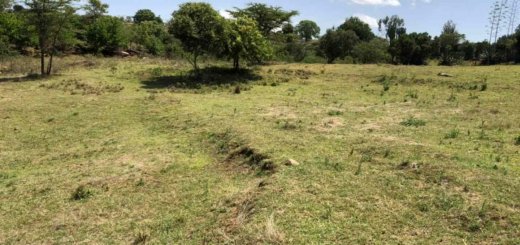Understanding Land Laws in Kenya: A Comprehensive Guide to Land Ownership


Land Laws
Introduction to Land Ownership in Kenya
Land ownership is a critical aspect of Kenya’s socio-economic structure. The legal framework governing land ownership is designed to ensure transparency, security, and fairness in land transactions. Understanding these laws is essential for anyone looking to buy, sell, or develop land in Kenya. This comprehensive guide delves into the laws on land ownership in Kenya, detailing the types of land tenure, key legislation, the role of land documents, and the processes involved in acquiring and transferring land.
Types of Land Tenure in Kenya
Understanding the types of land tenure in Kenya is crucial for anyone involved in land transactions. Land tenure refers to the legal regime in which land is owned or occupied. The various types of land tenure in Kenya are governed by different land laws, which ensure orderly management and use of land resources. Here, we delve into the primary types of land tenure in Kenya and the relevant land laws that govern them.
Freehold Tenure
Freehold tenure, also known as absolute ownership, is the most extensive form of land ownership in Kenya. Under this type of tenure, the owner has indefinite ownership rights over the land. Freehold land can be used, developed, or transferred at the owner’s discretion, subject to compliance with local zoning regulations and land laws. This type of tenure is common in rural areas and some urban settings.
Land Laws Governing Freehold Tenure: Freehold land is primarily governed by the Land Act 2012 and the Land Registration Act 2012. These laws provide the framework for the registration, transfer, and management of freehold land. The Constitution of Kenya 2010 also provides overarching principles for land ownership, emphasizing equitable access and sustainable use.
Leasehold Tenure
Leasehold tenure involves ownership of land for a specified period, usually 99 years, after which the lease can be renewed. The land remains under the ownership of the government or local authorities, which lease it to individuals or entities for the duration of the lease. Leasehold properties are prevalent in urban areas where the government retains ownership but leases the land for development.
Land Laws Governing Leasehold Tenure: Leasehold land is regulated by the Land Act 2012 and the Land Registration Act 2012. The Public Land Act and the National Land Commission Act 2012 also play crucial roles in managing leasehold land, particularly in terms of renewal, transfer, and compliance with zoning laws.
Customary Tenure
Customary tenure is based on traditional land rights recognized by specific communities. This form of tenure is prevalent in rural areas where land is managed according to customary laws and practices. Customary land rights are often communal and passed down through generations, with the community or clan having collective ownership and usage rights.
Land Laws Governing Customary Tenure: The Community Land Act 2016 governs customary tenure. This Act provides the legal framework for the recognition, protection, and registration of community land rights. It outlines procedures for registering community land, resolving disputes, and managing communal land resources in line with traditional practices and modern legal standards.
Public Land
Public land is owned by the government and includes land set aside for public use, such as parks, forests, and government buildings. The management and allocation of public land are overseen by the National Land Commission, ensuring that such lands are used for the intended public purposes and managed sustainably.
Land Laws Governing Public Land: Public land is managed under the Public Land Act and the National Land Commission Act 2012. These laws empower the National Land Commission to oversee the administration, allocation, and management of public land. The Constitution of Kenya 2010 also provides guidance on the use and protection of public land, emphasizing public interest and sustainable development.
Other Forms of Tenure
In addition to the primary types of land tenure, Kenya also recognizes other forms of tenure that cater to specific needs and contexts:
Group Ranches: Group ranches are a form of collective land ownership common among pastoralist communities. These ranches are managed collectively by group members and are used primarily for livestock grazing. The Group Representatives Act governs the formation and management of group ranches.
Cooperative Tenure: Cooperative tenure involves land owned and managed by cooperatives. This form of tenure is common in agricultural and housing cooperatives, where members collectively own and manage the land. The Cooperative Societies Act governs the formation and operation of cooperatives in Kenya.
Implications of Land Tenure Types
Understanding the different types of land tenure and the relevant land laws is crucial for several reasons:
Land Use and Development: Each type of tenure comes with specific rights and obligations regarding land use and development. For instance, freehold owners have extensive rights to develop their land, while leasehold owners must comply with the terms of their lease agreement, including potential restrictions on land use.
Security of Tenure: Different types of tenure offer varying levels of security. Freehold tenure provides the highest level of security due to its indefinite nature, while leasehold tenure is limited by the lease period. Customary tenure, though recognized by law, may face challenges related to formal recognition and documentation.
Transfer and Inheritance: The ease of transferring and inheriting land varies with the type of tenure. Freehold land can be freely transferred and inherited, subject to compliance with land laws. Leasehold and customary land may have specific conditions and restrictions on transfer and inheritance.
Dispute Resolution: Disputes over land ownership and use can arise in any tenure system. The legal framework governing each type of tenure includes mechanisms for resolving disputes, whether through the courts, the National Land Commission, or alternative dispute resolution methods such as mediation and arbitration.
 Key Legislation Governing Land Ownership
Key Legislation Governing Land Ownership
Understanding the key legislation that governs land ownership is crucial for anyone looking to buy, sell, or develop land in Kenya. The country’s land laws are designed to ensure fairness, transparency, and security in land transactions. They provide a legal framework that regulates land use, registration, and dispute resolution. Here, we explore the primary land laws that shape land ownership in Kenya, emphasizing their significance and applications.
The Constitution of Kenya 2010
The Constitution of Kenya 2010 is the supreme law of the land and provides the foundational principles for land ownership and management. It emphasizes equitable access to land, sustainable land use, and the protection of land rights for all Kenyans. Key provisions in the Constitution regarding land ownership include:
- Equitable Access and Distribution: The Constitution mandates that land should be held, used, and managed in a manner that is equitable, efficient, productive, and sustainable. It aims to prevent land concentration in the hands of a few and ensure that all Kenyans have access to land.
- Classification of Land: The Constitution classifies land into three categories: public land, community land, and private land. Each category has specific guidelines and regulations regarding ownership, use, and management.
- Protection of Land Rights: The Constitution guarantees the protection of legitimate land rights and interests. It ensures that any land acquisition, whether by the state or private entities, must be done transparently and with fair compensation.
The Land Act 2012
The Land Act 2012 is a comprehensive statute that governs the administration and management of land in Kenya. It provides detailed guidelines on land registration, leasing, and transfer. Key aspects of the Land Act 2012 include:
- Land Registration: The Act outlines the procedures for the registration of land titles, leases, and other interests in land. It aims to streamline land registration processes to ensure accuracy and reliability in land records.
- Leasing and Subleasing: The Act regulates the leasing and subleasing of land, detailing the rights and obligations of both landlords and tenants. It ensures that lease agreements are fair and legally binding.
- Compulsory Acquisition: The Land Act 2012 sets out the procedures for the compulsory acquisition of land by the government for public purposes. It ensures that landowners receive fair compensation and that the acquisition process is transparent and just.
The Land Registration Act 2012
The Land Registration Act 2012 focuses on the registration of land and property, aiming to consolidate and modernize the land registration system in Kenya. Key features of this Act include:
- Centralized Land Registry: The Act establishes a centralized land registry to maintain all land records. This centralization helps in reducing fraud and improving the efficiency of land transactions.
- Electronic Land Records: The Act promotes the use of electronic land records and transactions, making it easier to access and verify land information.
- Protection of Registered Interests: The Land Registration Act ensures that once an interest in land is registered, it is protected by law. This provides security for landowners and reduces the risk of disputes.
The National Land Commission Act 2012
The National Land Commission Act 2012 establishes the National Land Commission (NLC), which plays a pivotal role in land management and administration. The NLC is tasked with various responsibilities, including:
- Management of Public Land: The NLC oversees the allocation, management, and administration of public land on behalf of the national and county governments.
- Investigation of Historical Land Injustices: The Commission has the authority to investigate and recommend redress for historical land injustices, ensuring that past wrongs are addressed and rectified.
- Advisory Role: The NLC advises the national and county governments on land policies and issues, ensuring that land use and management align with national development goals.
The Community Land Act 2016
The Community Land Act 2016 provides a framework for the recognition, protection, and registration of community land rights. This Act is particularly important in areas where land is managed communally according to traditional practices. Key provisions include:
- Recognition of Community Land Rights: The Act recognizes and protects the rights of communities to own and manage their land according to customary laws and practices.
- Registration of Community Land: It outlines the procedures for the registration of community land, ensuring that these lands are officially recognized and protected by law.
- Dispute Resolution: The Act provides mechanisms for resolving disputes related to community land, ensuring that conflicts are addressed in a fair and transparent manner.
The Environmental Management and Coordination Act (EMCA) 1999
While not exclusively a land law, the Environmental Management and Coordination Act (EMCA) 1999 is crucial in governing land use in Kenya. EMCA ensures that environmental considerations are integrated into land management practices. Key aspects include:
- Environmental Impact Assessments: The Act mandates that any development project undergo an environmental impact assessment (EIA) to evaluate its potential effects on the environment. This ensures sustainable land use and development.
- Environmental Conservation: EMCA promotes the conservation and sustainable management of natural resources, including land. It ensures that land use practices do not degrade the environment.
Importance of Compliance with Land Laws
Compliance with Kenya’s land laws is essential for ensuring that land transactions are legal, transparent, and secure. Adhering to these laws protects landowners’ rights and helps prevent disputes. Key reasons for compliance include:
- Legal Security: Compliance with land laws ensures that land ownership and transactions are legally recognized and protected. This provides security for landowners and reduces the risk of legal challenges.
- Transparency and Fairness: Land laws promote transparency and fairness in land transactions, ensuring that all parties are treated justly and equitably.
- Dispute Prevention: Adhering to land laws helps prevent disputes by clearly defining ownership rights, responsibilities, and the procedures for resolving conflicts.
- Environmental Protection: Land laws that incorporate environmental considerations ensure that land use practices are sustainable and do not harm the environment.
Role of Land Documents in Land Ownership
Land documents play a crucial role in establishing and transferring land ownership in Kenya. These documents provide legal proof of ownership, outline the terms of transactions, and protect the rights of landowners. Key land documents include:
Title Deed
The title deed is the most important document in land ownership. It serves as legal proof of ownership and indicates that the holder has the right to use and transfer the land. Title deeds can be freehold or leasehold, depending on the type of tenure.
Land Search Certificate
A land search certificate is obtained from the Ministry of Lands and provides information about the current ownership, size, and any encumbrances or legal issues associated with the property. Conducting a land search is essential to verify the authenticity of the title deed and ensure that the land is free from disputes.
Sale Agreement
The sale agreement is a legally binding contract between the buyer and the seller, outlining the terms and conditions of the land transaction. It includes details such as the purchase price, payment schedule, and contingencies. The sale agreement should be drafted by a qualified lawyer to ensure compliance with Kenyan law.
Transfer of Title
The transfer of title is the process of changing the ownership of the land from the seller to the buyer. This involves submitting the necessary documents to the Ministry of Lands, including the signed sale agreement, the original title deed, and a duly filled transfer form. The transfer must be registered with the relevant land registry, and the buyer will receive a new title deed in their name once the process is complete.
Land Control Board Consent
For agricultural land transactions, obtaining consent from the Land Control Board (LCB) is mandatory. The LCB ensures that the sale complies with local land use policies and regulations. Both the buyer and seller must appear before the board to seek approval for the transaction.
Clearance Certificates
Several clearance certificates may be required during the land purchase process. These certificates confirm that the property is free from outstanding taxes, rates, and other liabilities. Common clearance certificates include the land rates clearance certificate and the land rent clearance certificate.
 Process of Acquiring Land in Kenya
Process of Acquiring Land in Kenya
Acquiring land in Kenya involves several steps, each requiring specific land documents. Here’s a detailed overview of the process:
Conduct a Land Search
Before purchasing land, it is essential to conduct a land search at the Ministry of Lands. This process involves verifying the authenticity of the title deed, checking for any encumbrances, and confirming the current ownership of the property. The land search certificate provides crucial information that helps prevent potential legal issues.
Draft and Sign a Sale Agreement
Once the land search is complete and the property is confirmed to be free from disputes, the buyer and seller can proceed to draft a sale agreement. This document outlines the terms and conditions of the sale, including the purchase price, payment schedule, and any contingencies. It is advisable to have the sale agreement drafted and reviewed by a qualified lawyer to ensure legal compliance.
Obtain Land Control Board Consent
For transactions involving agricultural land, obtaining consent from the Land Control Board (LCB) is mandatory. The LCB reviews the sale to ensure it complies with local land use policies and regulations. Both the buyer and seller must appear before the board to seek approval for the transaction.
Transfer of Title
The transfer of title is the process of changing the ownership of the land from the seller to the buyer. This involves submitting the necessary documents to the Ministry of Lands, including the signed sale agreement, the original title deed, and a duly filled transfer form. The transfer must be registered with the relevant land registry, and the buyer will receive a new title deed in their name once the process is complete.
Obtain Clearance Certificates
Before the transfer of title can be registered, several clearance certificates must be obtained. These include the land rates clearance certificate and the land rent clearance certificate. These certificates confirm that the property is free from outstanding taxes, rates, and other liabilities.
Registration of the Transfer
The final step in acquiring land is registering the transfer with the Ministry of Lands. This involves submitting the necessary documents, including the signed sale agreement, transfer form, and clearance certificates. Once the transfer is registered, the buyer will receive a new title deed in their name, officially completing the transaction.
Dispute Resolution in Land Ownership
Disputes over land ownership are common in Kenya, often arising from issues such as fraudulent transactions, unclear boundaries, or conflicting claims. The Kenyan legal system provides several mechanisms for resolving land disputes, including:
The National Land Commission (NLC)
The NLC plays a crucial role in resolving land disputes. It has the authority to investigate land-related conflicts, mediate disputes, and make recommendations for resolving issues. The NLC also oversees the management and allocation of public land, ensuring compliance with land laws and policies.
The Environment and Land Court
The Environment and Land Court is a specialized court established to handle land and environmental disputes. It has jurisdiction over matters related to land ownership, boundaries, and environmental conservation. The court provides a legal avenue for resolving land disputes through litigation.
Alternative Dispute Resolution (ADR)
Alternative Dispute Resolution (ADR) methods, such as mediation and arbitration, offer a more flexible and cost-effective approach to resolving land disputes. ADR allows parties to negotiate and reach mutually acceptable solutions without resorting to litigation. These methods are often faster and less adversarial than traditional court proceedings.
Conclusion
Understanding the law on land ownership in Kenya is essential for anyone involved in land transactions, whether buying, selling, or developing property. The legal framework governing land ownership is designed to ensure transparency, security, and fairness. Key legislation, such as the Constitution of Kenya 2010, the Land Act 2012, the Land Registration Act 2012, and the National Land Commission Act 2012, provides the foundation for land administration and management.



